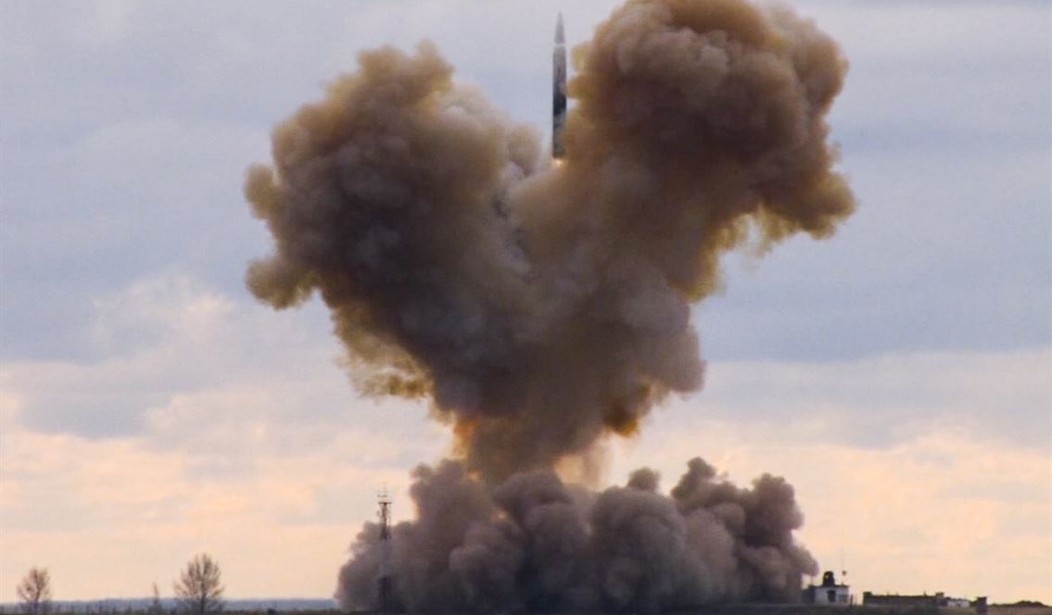The Russians conducted another test launch of their hypersonic Zircon cruise missile yesterday in the White Sea. If you’re not familiar with the 3M22 Zircon, it’s not a ballistic missile in the conventional sense because it can be remotely steered in flight to avoid missile defense systems or change targets as required. It’s also incredibly fast. The one they fired yesterday traveled more than five hundred miles and successfully struck its target. Since the Zircon is designed to be fired from naval vessels, this weapon gives Russia the capability to hit targets virtually anywhere in the world and the missiles are capable of being fitted with nuclear warheads. (Associated Press)
The Russian navy on Saturday conducted another test of a prospective hypersonic missile, a demonstration of the military’s long-range strike capability amid the fighting in Ukraine.
The Defense Ministry said the Admiral Gorshkov frigate of the Northern Fleet in the White Sea launched the Zircon cruise missile in the Barents Sea, successfully hitting a practice target in the White Sea about 1,000 kilometers (540 nautical miles) away.
The launch was the latest in a series of tests of Zircon, which is set to enter service later this year.
The Zircon has been in development since long before the invasion of Ukraine, but it’s obvious that the recent, stepped-up testing schedule is intended to send a message to NATO and the west. If push comes to shove and the current proxy war in Ukraine expands globally, there is no target that Russia could not strike. And the unfortunate reality is that we do not possess the technology to stop one of them with our existing missile defense systems.
The United States is playing catch-up in the hypersonic weapons race at the moment. We have two different models of scramjet missiles in development, one from Lockheed Martin and the other from Northrup Grummon. Both have achieved successful test launches in the past six months, but full production capability is still quite a ways off. Yet even if we catch up and both Russia and America have these systems, that doesn’t really provide any sense of comfort to us. It only means that both nations have devastating weapons with no way of protecting themselves from the other.
In the past, we have relied on the concept of Mutually Assured Destruction (MAD) to prevent global thermonuclear war, and it’s worked for many decades. But the entire theory of MAD comes with the requirement that neither nation is being led by someone who is insane, perhaps to suicidal levels. Looking at Russia today and the situation in Ukraine, I’m not entirely sure we can make that assumption anymore.
We need to be asking ourselves if there is going to come a point when the world’s superpowers stop simply rattling their sabers and actually start swinging them. Aside from the Cuban missile crisis, we have somehow managed to keep warfare confined to regional conflicts since the 1940s without facing a realistic scenario where the entire world might be once again engulfed in conflict with the potential for mushroom clouds to begin appearing over major population centers. The concept of “economic warfare” has rapidly gained in popularity in the west, but this weekend’s test by Moscow is a grim reminder that real warfare is never that far away if we allow diplomacy to fail entirely and international confrontations to spin out of control.
This brief video provides an overview of modern hypersonic weapons and what they mean to the global combat environment.








Join the conversation as a VIP Member